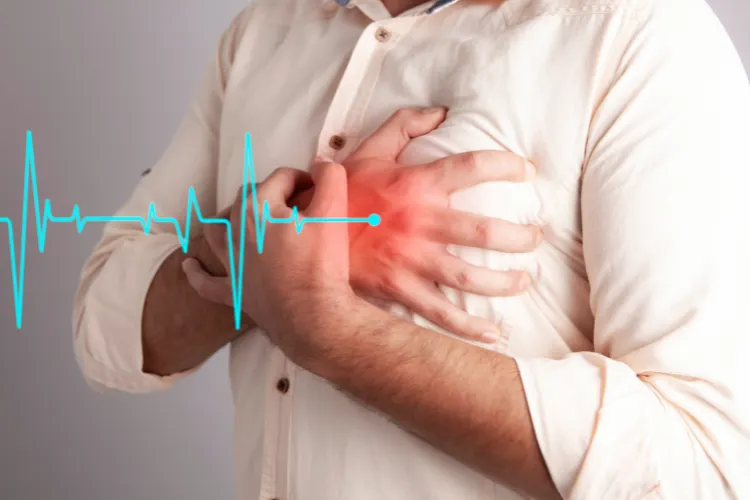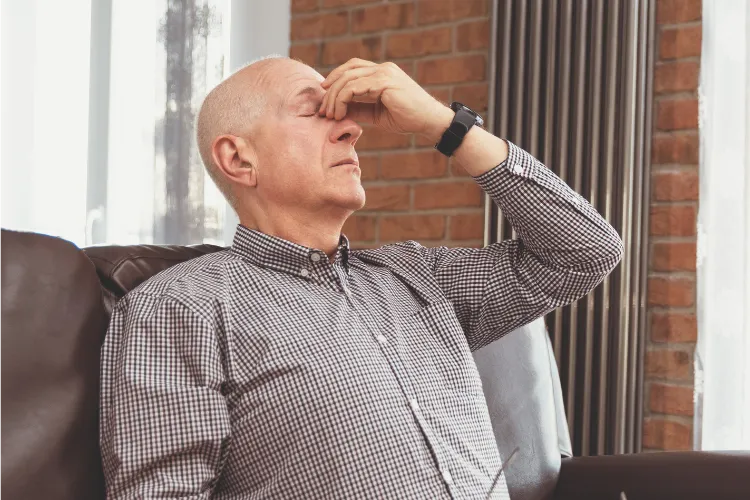6 Signs of a Heart Attack You Can't Ignore

Sometimes there are no obvious signs of a pre-heart attack. This disease is usually asymptomatic until the later stages. Early signs of a Heart Attack include feeling uncomfortable in the chest and shoulders, fatigued, lacking energy, having difficulty breathing, etc.
The symptoms of a heart attack might vary from person to person, but one will experience sharp pain for about 15 minutes on the left side of the chest when it happens.
There are differences in symptoms between men and women. Women usually don't experience chest pain; rather, they suffer from fatigue, disturbed sleep patterns, shortness of breath, indigestion, and anxiety disorders.
It is important to call emergency services right away if you feel you are experiencing a heart attack. Do not wait. If a person waits to receive treatment, they may not be able to receive the treatment they need, and they may not be able to fully recover. Whenever you need emergency services, call 911 and speak with an operator.
The Six Signs of Heart Attack
The six signs of heart attacks you can look out for can help you determine whether someone is suffering from one.
Heart Attack sign 1: Chest Pain or Discomfort
There is usually a tightness, a feeling of weight, or a burning sensation in the chest of a man when they are experiencing a heart attack. This usually starts in the chest and spreads throughout the body. Sometimes it persists; sometimes it goes away and then returns.
There are some people who do not suffer from pain at all, just mild discomfort or a dull type of pain that develops into quite intense pain; but there are others who will not suffer from pain at all, only mild discomfort.
You should call 911 right away if you suspect you are having a heart attack. If the person only feels chest pain, they should still see a doctor.
Heart Attack sign 2: Discomfort or Pain in Other Parts of The Body
Different people, especially women, will experience discomfort in the jaw and back during an attack. The symptoms of a heart attack may also manifest in the arms, the neck, jaw, back, or stomach.
Heart Attack sign 3: Shortness of breath
Having some shortness of breath after performing physical activity is common, however if it occurs while at rest, it can indicate heart failure. Take a short rest if your breathing becomes unusual. Call an ambulance if your breathing does not return to normal after two minutes.
Heart Attack sign 4: Nausea, Sweating or Clamminess

When one has a heart attack, many people, especially women, will feel nauseated, sweaty or clammy. These symptoms can also be indications of the flu, but if these symptoms appear abruptly or you also have other indications of a heart attack, call an ambulance right away.
Heart Attack sign 5: A general feeling of extreme fatigue or weakness
A potential heart attack patient may complain about general weakness or fatigue as their first complaint. Although it doesn't sound like much, it is a common sign that most potential heart attack patients were experiencing before they had their attack. The symptom alone, however, does not indicate a heart attack because there are too many other causes for weakness and fatigue.

It can be due to lack of oxygen, not having enough sleep, poor eating habits, anemia, arthritis, and others. But if other signs of heart attack are present, do not hesitate to call for emergency services immediately.
Heart Attack sign 6: Collapse or Falling
People who have heart attacks often collapse or lose consciousness, unlike those who have other chest conditions, which rarely result in this. Bring the person to an open area as soon as possible and call 911.
Early Warning Signs of a Heart Attack
The heart muscle normally begins to deteriorate a few days or even several months before a heart attack occurs (unless it is a heartbreak attack).
• There is a connection between high blood pressure and heart disease
• Heart problems can be indicated by chronic heartburn
• A reduction in cardiovascular fitness and shortness of breath
• The level of LDL cholesterol in the blood is high
• Before a heart attack, you feel unwell or run-down
• It is quite common for people to feel impending death before experiencing a heart attack. Depression may also be an indicator.
• In particular, older adults are more likely to experience stomach pain and indigestion
There are many conditions and diseases that have similar symptoms, so it can be hard to tell whether you are experiencing a heart attack. Look for several symptoms as the more symptoms you have, the higher your chance of experiencing one.
In order to prevent and cure diseases, you should schedule routine checkups with your doctor.
Before assistance arrives, take the following steps:
• When a person has a heart attack, they tend to panic. It is important to remain calm and calm them by telling them help is on the way, and that they are okay.
• A good recovery position is to sit in the "W" position with the back supported at 75 degrees and the legs bent so the knees are up and feet flat on the ground.
• A different position is to lie flat on your back with your feet up above your heart, commonly called the Venus position. This positions opens up your diaphragm, making breathing easier and increasing oxygen intake.
• It is advised to loosen all tight fitting clothing once the person has become comfortable, but do not let them become chilled, so make sure they are covered.
• In order to protect the lungs, the person should not walk around; rather, they should lie or sit in a relaxed position without exerting too much pressure on their lungs.
• Be mindful of not asking excessive questions or distressing the person, but be sure to check for any medical bracelets and tags and inquire about their medical condition or medications.
• Some people will be carrying aspirin or nitroglycerine in case they are anticipating a heart attack. Usually, they will know how much to take. Help them take a little bit.
• Whenever a person's heart stops beating, CPR must be administered, but the person who administers it must be properly trained.
• Performing heart compressions is the best option if you do not know how to perform CPR. When CPR is administered as soon as a person's heart stops beating, even before help arrives, the person's chances of survival vastly improve.
What to do if you are having a heart attack when alone (Most people are alone when they have a heart attack).
Whenever you are experiencing a problem, you should call 911, state your location first, then your name, and try and explain what is wrong.
You should only call friends and family after summoning emergency services
Please follow the instructions of the emergency service operator until help arrives.
If you are completely alone and do not have a phone, there is still one thing you can do that may save your life.
Despite its controversy, this self-procedure might be useful if you're alone and don't have access to professional help.
Inhale deeply and then cough vigorously from the base of your chest (in the same way a cat coughs to remove a fur ball).
For this to work effectively, a person needs to take very deep breaths about every 2 seconds. Breathe in and make a deep prolonged cough. This procedure has to be maintained until help arrives or your heart regains a regular rhythm and is beating normally.
What this procedure does is to bring large amounts of oxygen into your lungs; the coughing squeezes the heart and keeps the blood moving.
This squeezing pressure on your heart, at about every 2 seconds will help your heart regain its normal rhythm.
This will enable you to reach a place where you can ask for help or find help.
